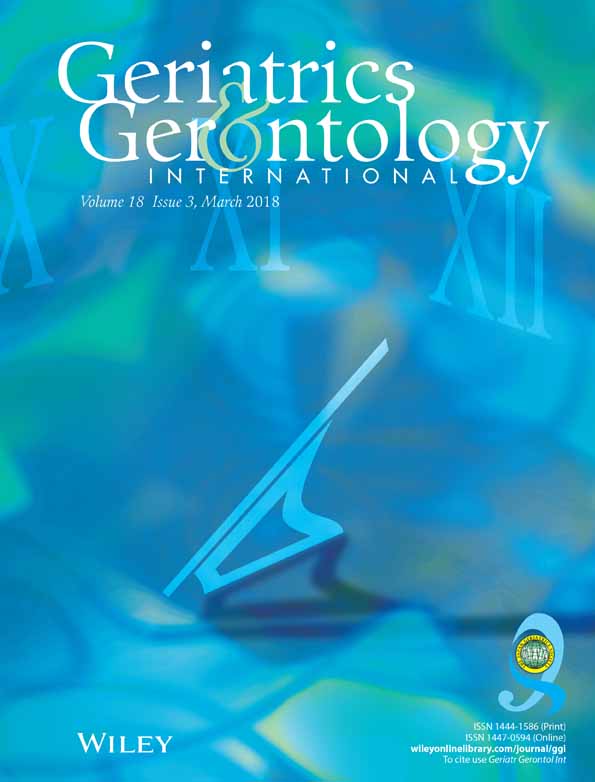Reliability of three questions for the screening of advanced cognitive impairment in polypathological patients
Abstract
Aim
To determine whether answering three questions erroneously (“what is the date today?,” “when were you born?” and “how old are you?”) allows for the detection of advanced cognitive impairment in polypathological patients.
Methods
A cross-sectional study of patients admitted to the internal medicine and geriatrics departments was carried out. Advanced cognitive impairment was diagnosed when patients made 7–10 errors in the Short Portable Mental Status Questionnaire.
Results
We included 441 polypathological patients, 330 of them from the internal medicine departments and 111 from the geriatrics department. Their mean age was 80.8 years (8.9 years). Of them, 141 (32.0%) answered one question incorrectly, 58 (13.1%) answered two and 89 (20.2%) answered all three questions incorrectly. The prevalence of advanced cognitive impairment was 27.7%. The sensitivity, specificity, and positive and negative predictive values of the test were 0.705, 0.991, 0.966 and 0.898, respectively. The accuracy of the test was 0.912. The area under the receiver operating characteristic curve was 0.947, 95% CI 0.923–0.970.
Conclusions
The three questions test has very good specificity and positive predictive value, and it can be used for the screening of advanced cognitive impairment in polypathological patients. Geriatr Gerontol Int 2018; 18: 441–447.




